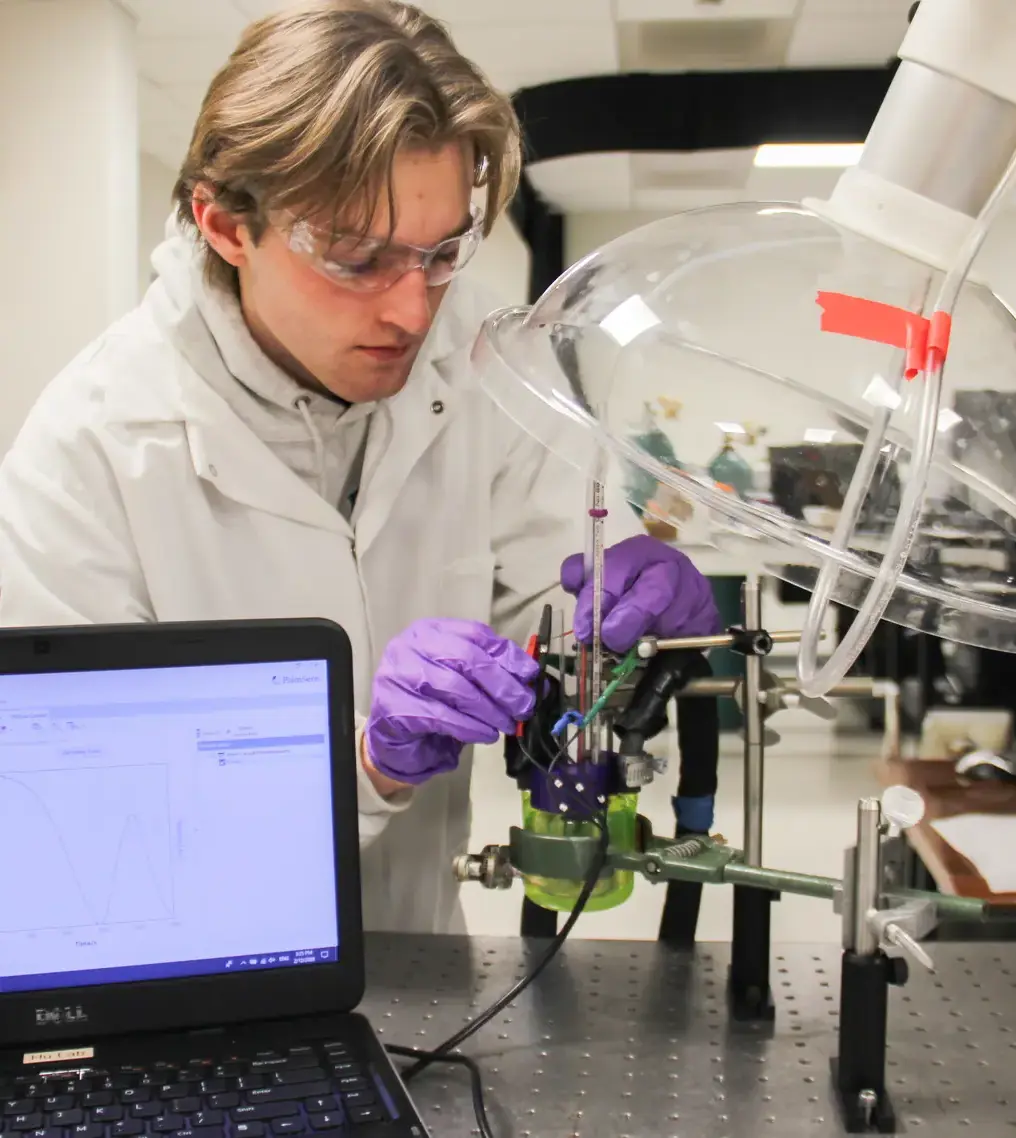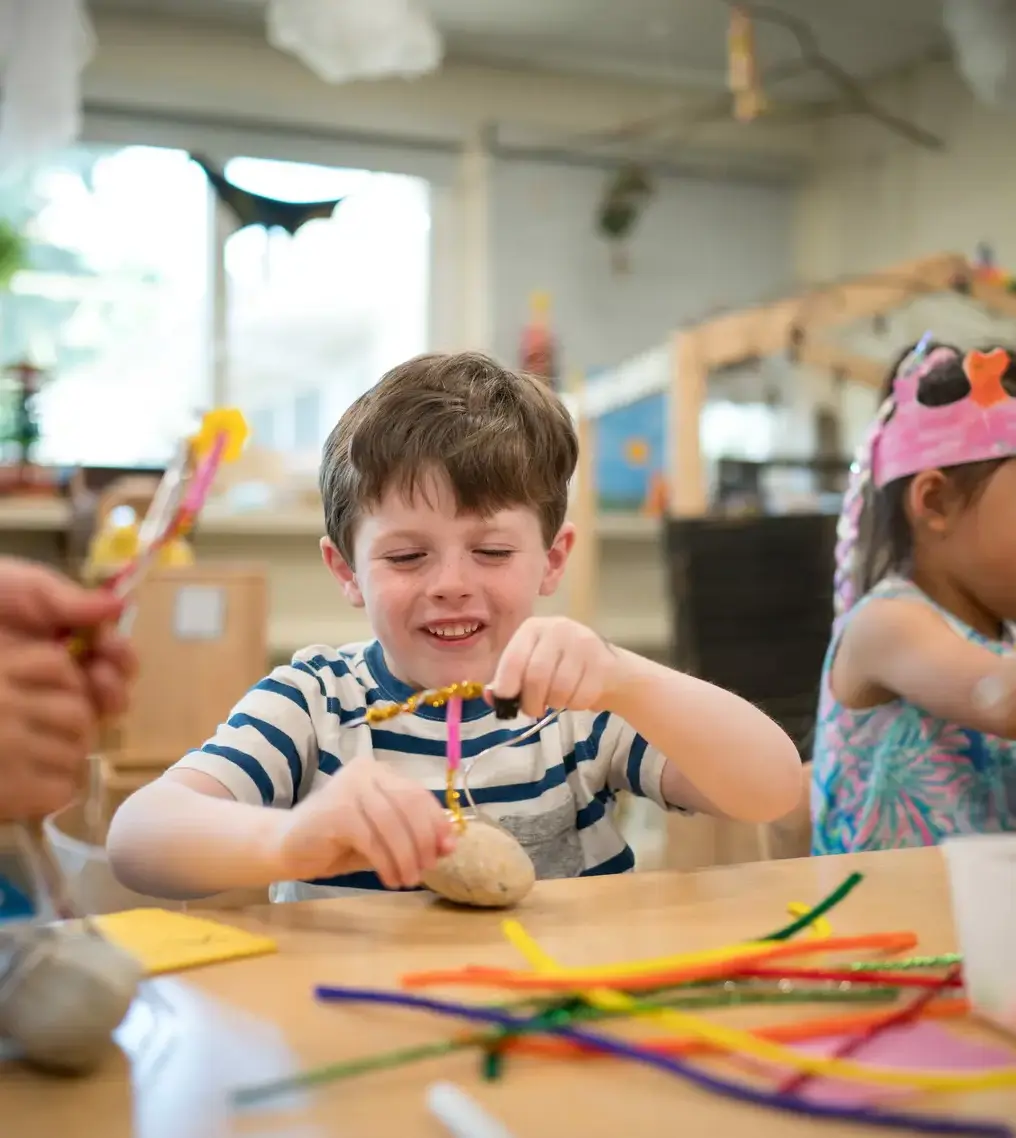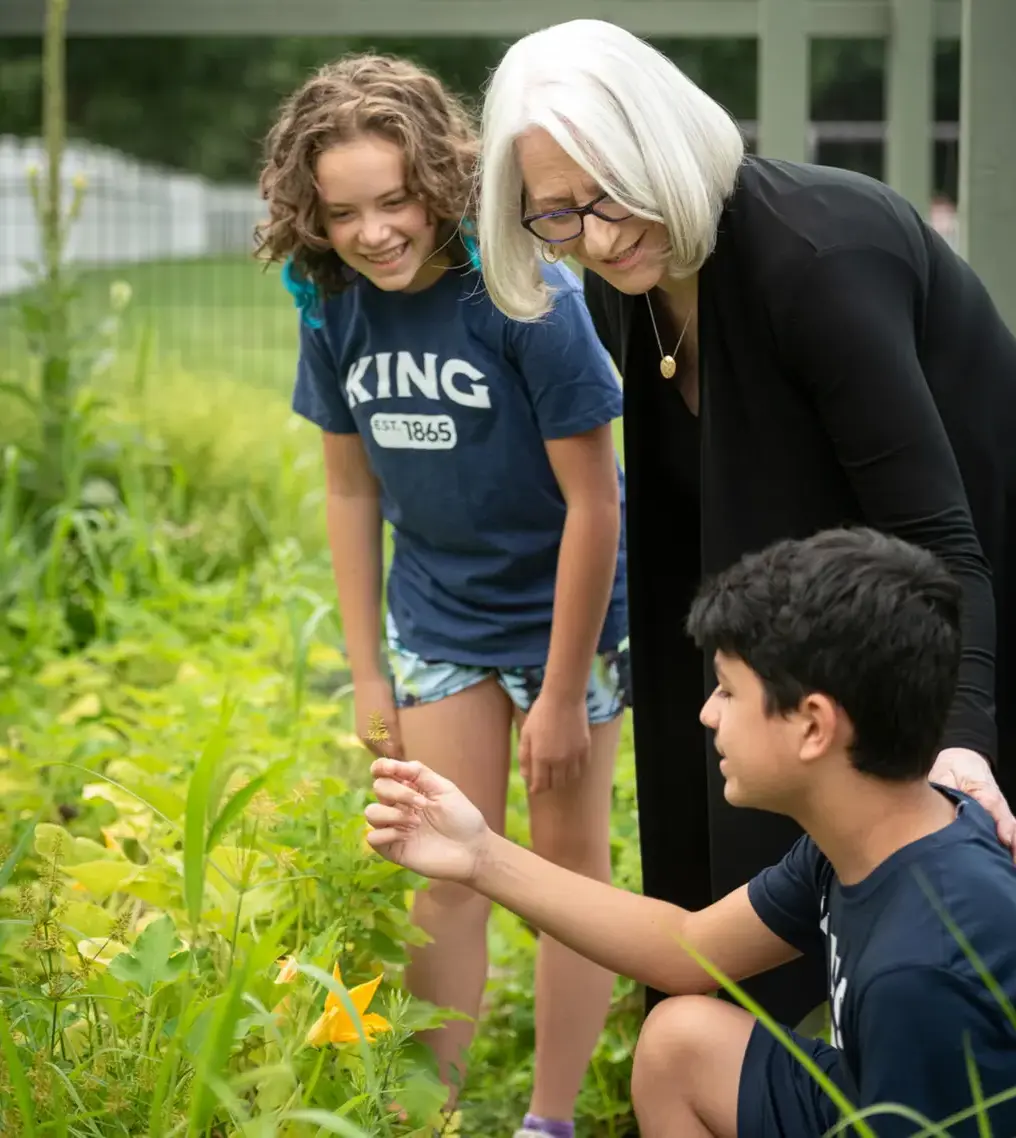Guest Speaker Amanda Volper KLHT’02 On Guiding Kids Through Anxiety
Amanda Volper KLHT’02 returned to King this week to speak with parents about the challenges of raising children in an era of rising anxiety. A clinical psychologist and co-founder of the City Psychology Center, Volper offered a perspective on the emotional landscape young people face and how parents can guide them without losing their footing.
 Drawing on audience questions and observations, Volper highlighted how children develop coping skills and confidence. She cautioned that in a culture that prizes achievement and control, parents’ instinct to smooth the path can backfire. Shielding children from every setback, she explained, robs them of the resilience that only comes from navigating challenges themselves.
Drawing on audience questions and observations, Volper highlighted how children develop coping skills and confidence. She cautioned that in a culture that prizes achievement and control, parents’ instinct to smooth the path can backfire. Shielding children from every setback, she explained, robs them of the resilience that only comes from navigating challenges themselves.
“When we fix everything for our kids, when we take away every negative feeling, our kids are not learning how to problem solve,” she said.
Event organizer Melissa Kennedy, Director of Middle School and Upper School Counseling and Grade 11 Dean, emphasized the value of the conversation for parents.
"Parenting teens is very difficult; we can never be sure if we are navigating the adolescence phase appropriately,” said Kennedy. “Supporting your teen with guidance and conversation is so important, and I believe Amanda helped to bring clarity around that.”
The theme of balance between protection and independence ran through the evening. Volper spoke to the reality of rising rates of anxiety and depression among teens, a trend that predates the pandemic and shows no sign of slowing. But rather than lean into alarm, she reframed the issue as an opportunity for empathy and awareness.
“Anxiety is a normal adaptive emotion that, from an evolutionary perspective, was developed in order to protect us,” she said. “Our job is to help kids learn to think about stimuli differently and learn to manage their thoughts differently, because it's their thoughts and interpretation that are driving up their anxiety.”
Social media, she noted, complicates that task profoundly. The constant connectivity and comparison are reshaping how adolescents see themselves and one another.
“The like button changed everything,” Volper said.
For girls, the effects often appear as social comparison and exclusion; for boys, as withdrawal into the closed worlds of gaming and online spaces. Both, she said, chip away at self-esteem and real-world connection. She suggested a solution of intentional structure, such as delaying social media until kids can handle it, setting consistent limits, and, above all, modeling self-control.
“I went to dinner the other night, my husband and I were commenting on all of the people we saw out on these date nights that weren't actually talking to each other, but were staring at their phones,” she said. “We're adults, we know the risks, and yet we can't pull ourselves away. And yet we're giving phones and smartphones to an adolescent who doesn't have a fully developed brain.”
Volper sought to reframe what it means to parent children in a world that moves faster than it did in the past. She urged parents to pay attention to behavior and to look out for the quiet signs of struggle.
“There are some like-minded families here, use each other,” she said. “Continue to have the approach of educating yourselves and making your decisions based on research and experience.”









